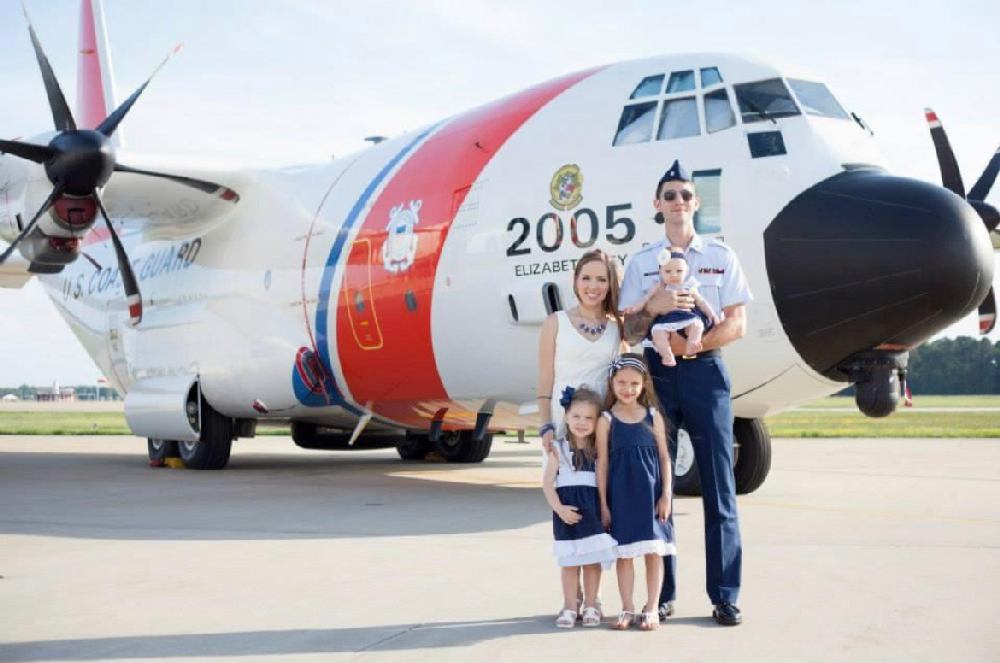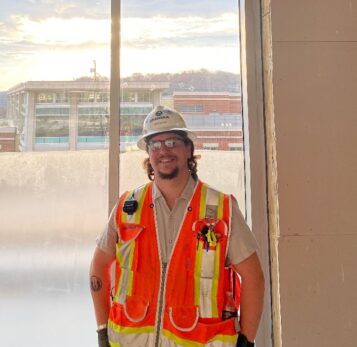
Veterans building pathways to field leadership roles
By Greg Peele
Annually, nearly 200,000 servicemen and women transition from active duty in the United States military. According to the Department of Defense, this results in approximately 550 new veterans re-entering civilian life each day, a figure anticipated to rise in the foreseeable future. For some veterans, the journey doesn’t end with their military service but continues on the construction site.
The military and the construction industry share strong work ethics, a sense of community, good communication and a passion for teamwork. According to the Associated Builders and Contractors, more than 500,000 additional workers, on top of the normal pace of hiring, were needed in 2023 to meet the demand. Despite the unemployment rate remaining below 4%, there have still been reports of unfilled job vacancies. In fact, as of September 2023, the U.S. Department of Labor reported a staggering 9.6 million job openings.
Armed with technical skills that seamlessly transition into civilian careers, military veterans understand that securing an exceptional job entails more than just possessing the requisite expertise. It’s about discovering the perfect alignment between skills and the industry.
Thankfully, these technical proficiencies can seamlessly align with a sector actively seeking skilled tradespeople and supervisors, while demonstrating a strong commitment to hiring veterans: the construction industry. The following are a few stories of veterans who transitioned from the military to the construction industry, and what they bring to their positions.
 Combining hard work, discipline + attention to detail
Combining hard work, discipline + attention to detail
Drew Shelton: From military service to construction excellence, Shelton’s journey serves as a testament to the remarkable abilities and qualities that veterans bring to the construction industry. Hailing from Mechanicsville, Virginia, Shelton joined the military right after graduating from high school. He underwent rigorous training at Airborne School at Fort Benning and became a specialist in controlled aircraft and artillery during his four-and-a-half years of military service.
After leaving the military, Shelton found a new mission in the civilian world working for an electrical company. His talent did not go unnoticed, and he soon found himself working on several Skanska projects. Impressed by his dedication and skills, the construction company recognized Shelton ‘s potential and decided to bring him on board. Shelton has been an integral part of the team for more than two and a half years, proving that the transition from military service to the construction industry can be a seamless one.
Shelton ‘s perspective on the military and the construction industry is illuminating. He believes that both fields are hands-on industries, where the values of hard work, discipline and attention to detail are paramount. He highlights the importance of effective communication, a strong sense of community and a team-oriented environment that are central to both the military and construction.
Today, Shelton serves as a field engineer, overseeing subcontractors and ensuring projects run on schedule at Radford University’s $80.5-million Center for Adaptive Innovation and Creativity project. His story is a shining example of how veterans’ skills and dedication can make a significant impact in the construction industry.
 Bringing adaptability, teamwork + safety to the jobsite
Bringing adaptability, teamwork + safety to the jobsite
J.W. Weathers: Weathers is a dedicated United States Coast Guard veteran with 10 years of active duty service and an additional seven years in the Reserves. His military background equipped him with a wide array of skills that are not only relevant, but highly applicable to the construction managerial field.
Among the numerous assets his military experience has instilled in him, three stand out as particularly vital. First and foremost, Weathers emphasizes the ability to adapt, a skill he honed through his service. The military demands quick thinking and the capacity to pivot in response to evolving information and changing environmental conditions. In the fast-paced world of construction, where schedules, subcontractor needs and other factors can shift rapidly, this adaptability is a significant asset.
Secondly, Weathers underscores the importance of teamwork, a value deeply ingrained in military service. He believes the camaraderie within a team of soldiers, sailors, airmen or guardsmen is one of the most cherished aspects of military life. Similarly, the construction industry relies heavily on teamwork. Both domains require effective coordination, mutual understanding and a shared commitment to workflow. Whether it’s standing an extra “fire watch” on a boat deck, or working late to complete a scope of work, the focus is on contributing to the team’s success. This dedication to collaboration directly benefits the entire team, mirroring the sense of purpose found in the military.
Finally, Weathers emphasizes the paramount importance of safety, a concept deeply ingrained in both the military and the construction field. In the military, safety is a non-negotiable priority due to the inherent risks involved. Similarly, the construction site is a dynamic environment with numerous moving parts, demanding constant vigilance not just for one’s own safety, but for the well-being of all those on site. Weathers ‘s commitment to safety aligns seamlessly with the construction industry’s emphasis on maintaining a secure and productive work environment.
Weathers’ journey from the U.S. Coast Guard to assistant superintendent exemplifies the wealth of skills and values that veterans bring to the construction field. His ability to adapt, dedication to teamwork and unwavering commitment to safety make him a remarkable asset in the industry, and his military experience continues to shine through in his contributions to his construction team.
 Drawing on complementary skills + background experience
Drawing on complementary skills + background experience
James (Jim) Moon: Moon, a senior superintendent in the greater Washington D.C. area, is a distinguished veteran who discovered a new vocation that perfectly complements his military background. Born in Baltimore, Maryland, Moon embarked on his military journey by joining the Marines after completing high school. He dedicated four years to active duty and an additional two years in inactive reserves duty. During his service, Moon held the role of a logistics specialist, responsible for organizing helicopter payloads of munitions, artillery pieces and small vehicles. He also oversaw beach operations during amphibious landings, ensuring the efficient unloading of equipment.
After leaving the military, Moon joined the carpenters union in Baltimore, gaining experience in various aspects of the construction industry, including concrete work, drywall installation, metal stud framing, trim work and cabinet installation.
Moon’s journey led him to Skanska 17 years ago, where he was recruited due to his exceptional skills and experience. In his role as a senior superintendent, he leads the project team in coordinating all onsite activities, manages the project schedule, ensures the standards of quality for the project are maintained and ensures strict adherence to construction documents. Through his stanch dedication and hard work, Moon has demonstrated that his military experience has equipped him with the essential skills and mindset needed to thrive in the construction field.
Providing a supportive work environment for veterans is a shining example of how the construction industry can benefit from the unique qualities that veterans bring to the table. It’s important to recognize and honor those who have served and continue to serve our country, both in uniform and on the construction site, building communities and making a difference in their post-military careers.
Greg Peele is Skanska’s regional executive officer for the Southeast and Central regions.



 Join our thriving community of 70,000+ superintendents and trade professionals on LinkedIn!
Join our thriving community of 70,000+ superintendents and trade professionals on LinkedIn! Search our job board for your next opportunity, or post an opening within your company.
Search our job board for your next opportunity, or post an opening within your company. Subscribe to our monthly
Construction Superintendent eNewsletter and stay current.
Subscribe to our monthly
Construction Superintendent eNewsletter and stay current.